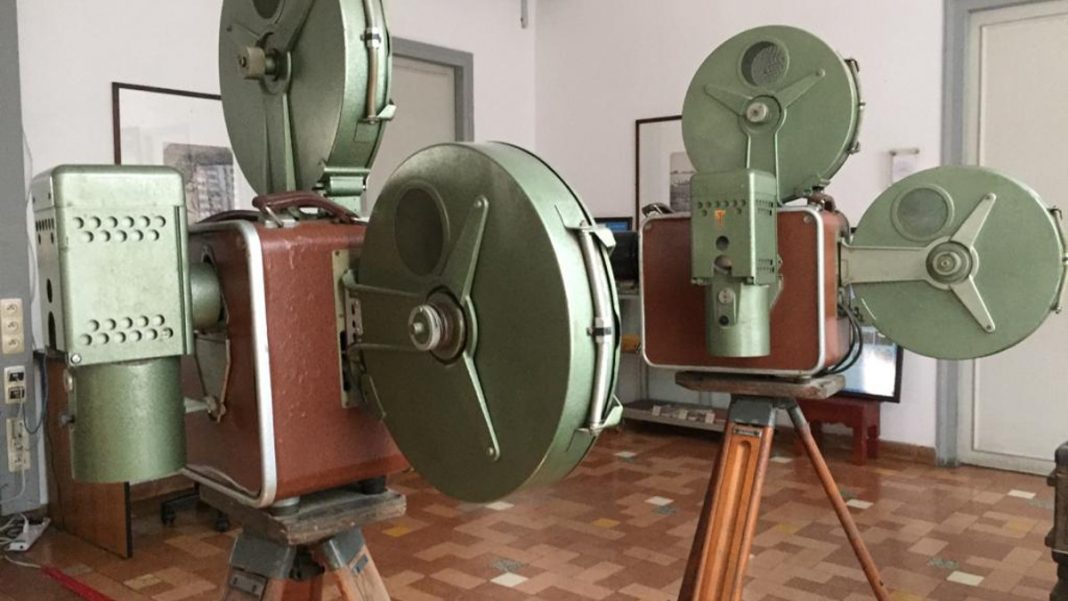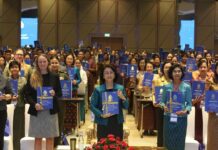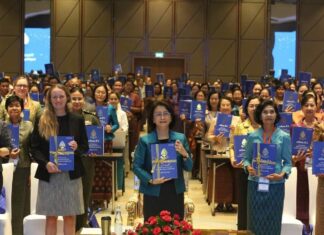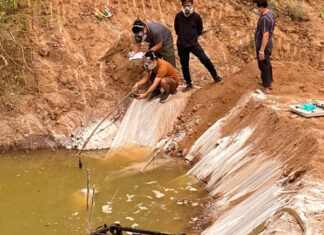Cambodian filmmakers say they believe in the industry’s potential — film can reflect the values of society, and expand the boundaries of culture both emotionally and intellectually. Low costs in the country could even attract foreign productions to shoot here.
But there are a myriad of obstacles: Most of all, there is no film school in the country. Actors are plucked from the streets instead; production crews are assembled amid a scarcity of skilled talent — the industry lacks the capacity to carry out multiple major productions at the same time.
Hot Ravy, a freelance scriptwriter and director, has seen waves of filmmakers in the country rise up, and quickly dissolve: Most budding directors soon give up, and find more realistic jobs, he says.
“It’s very difficult looking for talent,” he says. “We mostly pick actors and actresses from the street.”
Sothea Ines, who began writing scripts in 2012, says Cambodian filmmakers must essentially fend entirely for themselves, including saving up from odd jobs to pursue a costly passion.
“It’s a really tough situation for upcoming, aspiring filmmakers because in Cambodia, we don’t even have a film school,” she says. There is “no funding, no support, no platform. So far, I’ve been making my short films using my own savings from doing jobs for others.”
The challenges, however, are ultimately worth it for Ines. “It’s always a great joy as a filmmaker to see stories that were only on paper and in my head come alive,” she says.
Ruth Sansitny, a lecturer at the Royal University of Phnom Penh’s department of media and communication and a freelance director, says the industry has a long way to go.
There has been some progress in the commercial film sector — mostly for producing advertisements — but it threatens to crowd out creative filmmaking, he says. “If commercial films become too dominant, the thoughts of society are limited to this very small goal; nothing new will be created emotionally or intellectually.”
But financial realities make it hard to pursue creative work. “The most common problem I face is when I work on commercials I have money but no time, and when I work on my own films I have time but no money,” he says.
“My goal is to ultimately be in the creative film industry, and it has been difficult over the years to find the right balance between having adequate money and doing what I really love.”
The difficulty is compounded for anyone who is trying to get established, he says.
“I think it’s really hard for young filmmakers just starting out to have the right balance between money and time because film is such an expensive medium.”
For Sansitny, however, the potential is clear.
“Our Cambodian cinema should have many directors telling diverse stories in a way that is distinctly Cambodian,” he says.
“That means in film, many different types of films being made, challenging us as viewers to confront our own biases and the problems of our society.”
Foreign productions are looking at Southeast Asia as a low-cost destination for shooting. “But currently we lack the skill and expertise to support having multiple big productions,” he says. “The creative film industry needs to develop new skilled directors to grow their personal voice, stories, and style.”
An Pagna, a drama professor and dean at the Royal University of Fine Arts, says establishing a film school has long been discussed, but it is too expensive an undertaking.
The university has had a director in charge of drama, dance and circus since 1990, and it already has some lecturers who can teach film, but to thrive it needs a dedicated department, he says. “We don’t have a film school because it would require a lot of money to establish it.”
He adds that the university already has trouble keeping both students and teachers focused on their lessons.
“Some teachers aren’t focused on their teaching during class. They just talk about their families’ stories or topics unrelated to the lesson. The students themselves often come to class late because they are busy with their work, and they are focused more on money than education,” Pagna says.
“Every year all the students graduate successfully whether or not they are weak or outstanding, so we only get quantity and no quality,” he says.
Ravy, the freelance scriptwriter, says that if the market could grow, filmmaking could become an important part of the country’s cultural fabric.
“It is related to the cultural traditions of the country; we make films to show ideas to people — our thinking behind what’s bad and good.”












